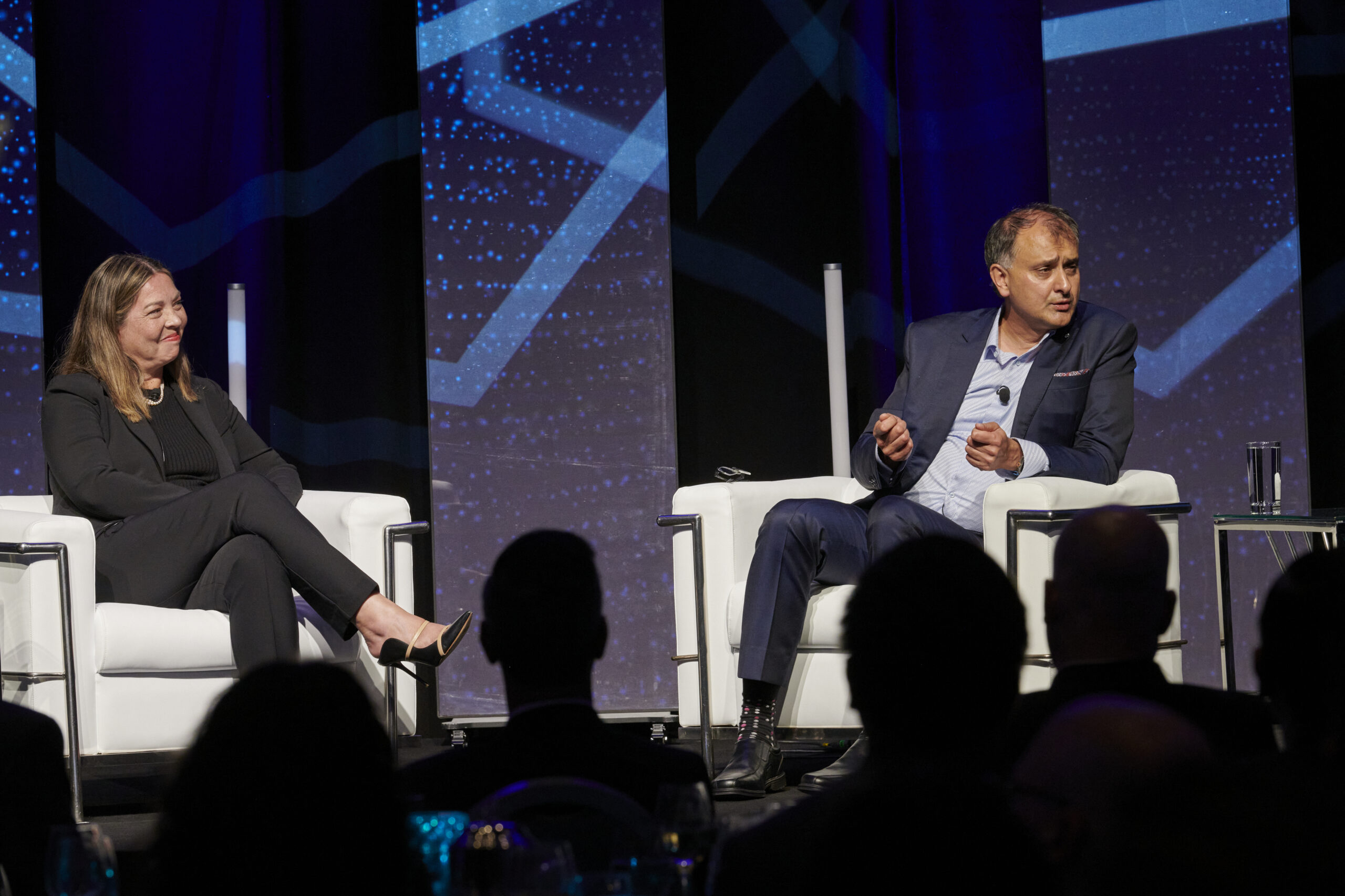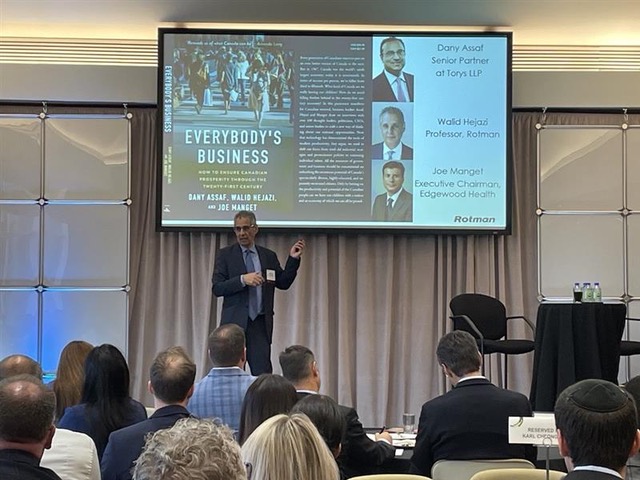How Will AI Disrupt the Financial Services Industry and Other AI insights from the CFA Society Annual Dinner

On October 4, 2023 the CFA Society Toronto hosted its 66th Annual Investment Dinner with the keynote from economist and professor Ajay Agrawal, founder of Toronto’s Creative Destruction Lab, which boasts one of the greatest concentrations of AI start-ups of any program globally. Agrawal is the co-author of Prediction Machines and Power and Prediction. His topic was: “Our Automated Future: How Generative AI will Change Our World”.
AI is in the early innings of a hype cycle and generating more questions than answers. “Will AI disrupt every business?” “How will it affect investing?” “Who will be the potential winners and losers?” And “What does it mean to be human in the Age of Generative Machines?”
Before we hyperventilated over the various scenarios and outcomes, Agrawal reminded attendees to start at the beginning, in this case, with Economics 101. As the cost of a product or service decreases, demand rises.
In his opinion, AI will have the greatest initial impact on chokepoints in productivity where there is scarcity in the value chain. Companies could initiate AI audits to find areas to deploy it in the form of point solutions, that is, not disrupt the entire system but to strategically improve productivity in a key area. For example, on a large sales team where everyone is doing the same kind of job, there will be some team members who are very productive and others less so. The large spread in productivity could be narrowed by using AI-enabled predictive tools to coach less productive salespeople on NBAs (“Next Best Actions”). A CEO saying, “We want to be an AI company” is meaningless; the goal should be to use AI to improve value in a specific part of the production chain.
How might AI affect the financial services industry? As a starting point, Agrawal suggests we look at how the semiconductor industry changed the financial services industry by transforming the speed and power of computing and connectivity. In the short term, there are several functional areas in finance where AI could be deployed.
AI tools are adept in compliance functions, such as identifying anomalies quickly. They can also be used effectively in ESG screening. He compared financial products to pharmaceutical drugs as both industries are probabilistic. Pharmaceutical companies must test their products against various scenarios before they can be approved by the FDA. Agrawal posits in the future financial products may undergo similar testing to predict the probability of success for a particular investment strategy. Those products that pass the threshold of probable success will proceed to market.
Large language models (LLMs) will permit automation of such unstructured, language-based tasks as drafting commentaries, emails, personalized customer-facing communications, and research papers, in the same way automation is used for generating numerically based structured tasks such as reports, analysis etc. With AI tools, a “daisy chain” of structured and unstructured tasks can be automated.
Machine learning tools have made great progress in prediction. Their speed and power of generating high fidelity predictions will necessarily bring down the costs of solving prediction problems. They can unlock language, images, and soon, the physical world through Large Behavioral Models (LBMs). However, machines have made zero progress in judgement which should carry a significant premium alongside the depreciation in prediction.
Unlike humans, machines (so far) do not want anything and have no inherent biases unless they are programmed to weight inputs and outcomes differently. As Agrawal said, even those who are at the very centre of machine learning research are surprised by emergent effects. He stressed the importance of the word, emergent. In the context of AI, emergent refers to unexpected developments as the models scale. Whether the emergent effects are boon or a bust for industry (and humanity) remains to be seen. Stay tuned.

CFA Society Toronto Annual Wealth Conference 2023
On September 21st the CFA Society of Toronto hosted their annual conference where leading speakers from the financial and academic communities presented on a range of timely topics— even recording a live podcast episode. Here […]

CFA Society Vancouver Annual Forecast Dinner
Like any intern, my goal is to learn, network and gain a better understanding of the finance industry. Attending the CFA Society Vancouver annual forecast dinner with Pender provided a unique experience and invaluable insights […]



